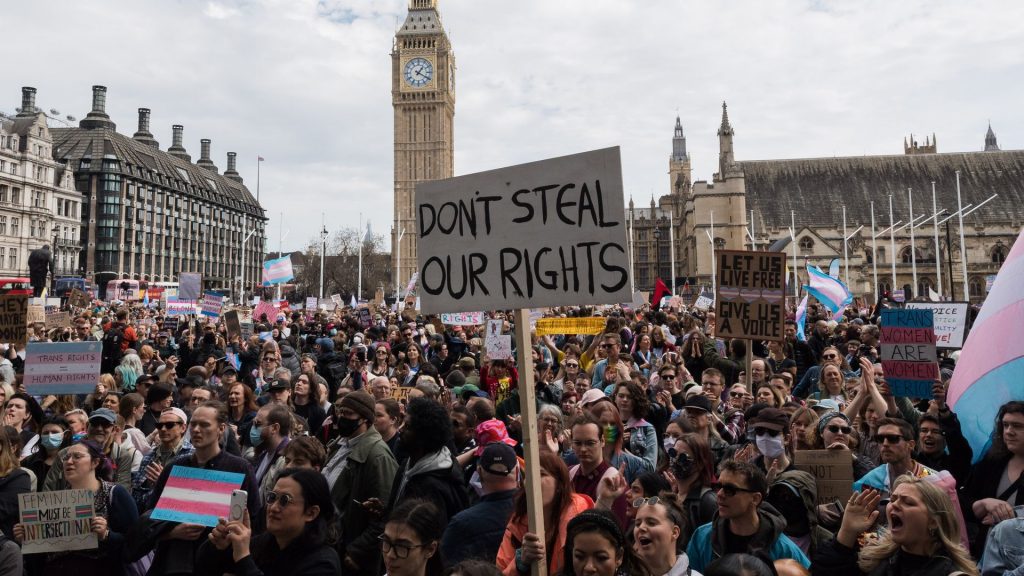UK to test transgender children for autism, mental illness
Ella Greene April 28, 2025 0
The U.K.’s National Health Service will begin examining children referred to gender clinics for autism, under new rules obtained by The Telegraph. The NHS plans to roll out the program later this year, following a consultation period.
The new program is set to replace a gender identity program that officials said would prescribe puberty blockers to children without first looking into their mental health history. U.K. officials said they are looking to move to a more “holistic” approach.
What does it change?
NHS officials will now assess children for medical conditions like ADHD, autism, learning disabilities or mental health issues to determine any underlying factors related to gender identity. Additionally, medical professionals will consider family relationships and the individual’s sexuality.
Why now?
The move follows a review from pediatrician Baroness Cass, who said mental health disorders were more prevalent in children and youth with gender dysphoria, which is the basis for the new rules. Cass additionally found that those within the transgender community faced higher rates of suicide and self-harm.
Cass’s review also noted, the quality of studies touting the positive effects of puberty blockers in children and young adults with gender dysphoria was “poor.” The NHS has been banned from prescribing puberty blockers to children diagnosed with gender dysphoria since 2024.
What happens to patients?
Once the new guidelines are set, medical officials will determine each patient’s treatment plan based on their diagnosis. Doctors will then decide whether to treat a person for a learning disorder or gender dysphoria. Patients may potentially have to undergo reviews every six months or be discharged from the service.
Patients must reportedly be referred to the program from “a pediatrician or adolescent mental health worker.”
How are some reacting?
Some transgender advocates welcomed the new guidelines as it focuses more on a holistic concept after acknowledging mistakes by health officials in the past. However, advocates still urge medical professionals to examine external factors as well, such as school teachings, television, social media and society as a whole, where transgender people face barriers, including a new one introduced just this week.
The same week as a restroom ban
A U.K. government official told The Guardian on Sunday, April 27, that transgender people are banned from using restrooms of the gender they identify with. The move comes after a ruling by the U.K. Supreme Court on April 16, declaring the terms “woman” and “sex” refer only to a biological woman and to biological sex within the U.K.’s Equality Act, as Straight Arrow News previously reported.
The Equality and Human Rights Commission said on Friday, April 25, that transgender women shouldn’t be permitted to use women’s bathrooms and that transgender men shouldn’t be allowed to use men’s bathrooms, when it referred to public places, like restaurants, workplaces or hospitals. The commission added, if a transgender person uses a restroom aligning with their gender identity, “this will mean that they are no longer single-sex facilities and must be open to all users of the opposite sex.”
How will officials enforce the ban?
So far, enforcement of the reported ban is unclear. British politician Pat McFadden said there won’t be any “toilet police” when asked about the new ban.
“There isn’t going to be toilet police. But that is the logical consequence of the court ruling and EHRC guidance,” McFadden said.
What are trans advocates saying?
Trans advocate Christine Burns warned a blanket ban could be “incredibly dangerous” for trans women, given there is “no indication how that should be enforced.” Burns argues that the guidance “make service providers the enforcers” and “without training, it means their staff will be sent out to use their imagination as vigilante toilet police.”
Critics have also called the new EHRC guidance rushed out without much consideration, warning it will lead to further discrimination against LGBTQ people and potential violence.
How are others responding?
The EHRC defended the guidelines, saying there was already a three-month consultation period and changes made in drafting the proposal were necessary, given the high court’s ruling.
For Women Scotland, which is funded by author JK Rowling and brought the legal challenge to the Equality Act to the Supreme Court, welcomed the new rules, calling them a “welcome relief.”
Related Stories
Ella Rae Greene, Editor In Chief
Ella Greene
Ella and the staff at Clear Media Project (CMP) curate these articles.
Unless otherwise noted CMP does not write these articles.
The views, thoughts, and opinions expressed in the articles published on this blog belong solely to the original authors and do not necessarily reflect the views of the blog owner. The blog owner does not claim ownership of the content shared by contributors and is not responsible for any inaccuracies, errors, or omissions.
All rights and credits goes to its rightful owners. No Copyright Infringement is intended. If you believe any content infringes on your rights, please contact us for review and potential removal.





